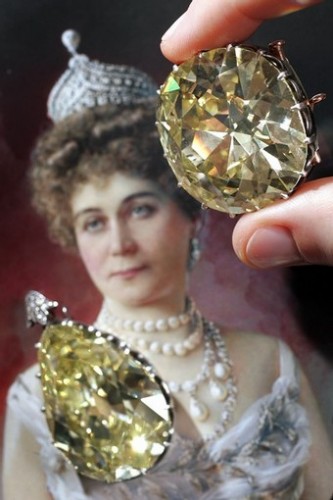
Esther Pauline Thérèse Lachmann, Mme Villoing, Mme la Marquise de Païva, Countess Henckel von Donnersmarck
Grandes Horizontales, Virginia Rounding, Bloomsbury, 2003
Pages from the Goncourt Journals, Edmond and Jules de Goncourt (tr. Baldick), NYRB, 2007
At table she expounded a frightening theory of will-power, saying that everything was the result of an effort of the will, that there were no such things as fortuitous circumstances, that one created one’s own circumstances, and that unfortunate people were so only because they did not want to stop being unfortunate….She spoke of a woman who, in order to attain some unspecified aim, shut herself up for three years, completely cut off from the world, scarcely eating anything and often forgetting about food, walled up within herself and entirely given over to the plan she was developing. And then she concluded: “I was that woman”.
Goncourt Journals, January 3, 1868 (p. 134)
La Païva (Esther Pauline Thérèse Lachmann, Mme Villoing, Mme la Marquise de Païva, Countess Henckel von Donnersmarck) was one of the most famous courtesans of decadent Second Empire France — famous for bleeding her lovers dry. In those days marriages were expected to be loveless and there was no such thing as a relationship, and men who had the wherewithal satisfied their needs for sex, romance, fantasy, ego-gratification, etc. through a variety of more or less openly commercial arrangements. A few of the courtesans became the objects of bidding wars and were able do very well for themselves, and La Païva married several aristocrats and spent the last years of her life in her final husband’s castle. (more…)
